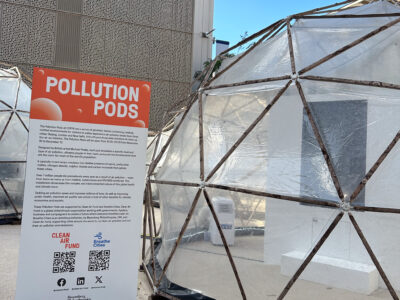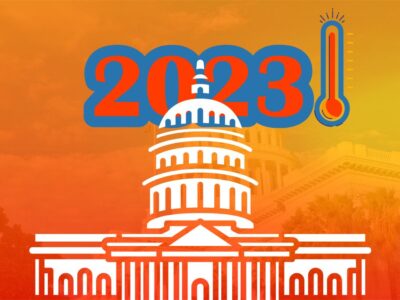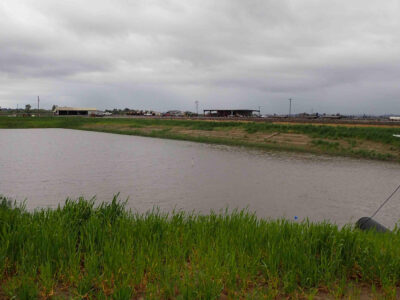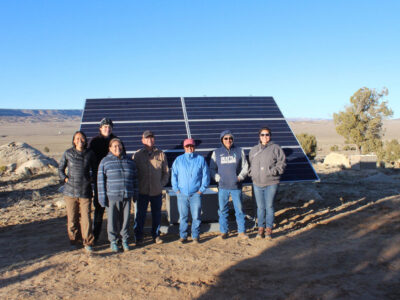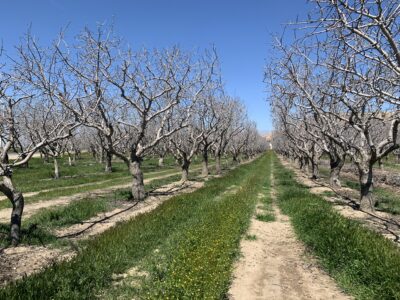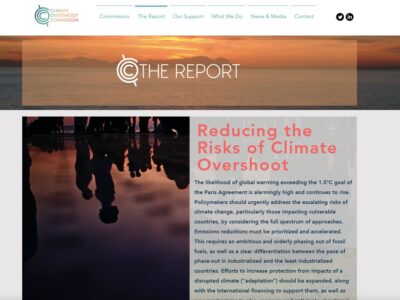Climate Adaptation
Critical Insights on the Mineral Boom: Part III
On the rise of resource nationalism and building an equitable supply chain: Insights from the Emmett Institute’s “Powering the Future” symposium.
The topic of critical minerals and the energy transition is one of choices and priorities, at least according to author and journalist Ernest Scheyder, who spoke at the second panel in our recent “Powering the Future” symposium. This panel, Critical Minerals and Global Supply Chains, discussed some of the fundamental choices that governments, industry, and …
Continue reading “Critical Insights on the Mineral Boom: Part III”
CONTINUE READINGRecentering Environmental Law: A Thought Experiment
If we had understood then what we know now. . . .
In 1965, scientists sent LBJ a memo mentioning the risks of climate change. Imagine if history had been a little different. Suppose it had been this memo and a follow-up report, rather than Rachel Carson’s attack on pesticides, that sparked the environmental movement. How would environmental law look different and how might we be thinking about …
Continue reading “Recentering Environmental Law: A Thought Experiment”
CONTINUE READINGCentering Public Health at the UN Climate Talks
Guest Contributor Meleana Chun-Moy reflects on COP28 and the growing recognition of the intersection between the climate crisis and human health.
The climate crisis is a public health crisis, and it finally seems global leaders have recognized that fact. With the backdrop of the first-ever Health Day at the annual UN climate conference, air quality in Dubai soared, as PM2.5 pollution reached 155 micrograms per cubic unit. The World Health Organization states the annual average concentrations …
Continue reading “Centering Public Health at the UN Climate Talks”
CONTINUE READINGFood and Farming Makes the Menu at UN Climate Talks
Guest contributor Antonia Moure Richard of UCLA Law reports that regenerative agriculture was a big focus of COP28, but industrial farming was largely ignored.
At the United Nations climate conference known as COP28, it was easy to come to the realization that we must confront every aspect of the climate crisis, and we must do it right now. That includes transforming our food systems. Agriculture has historically been left out of the conversation at COP. That changed this year …
Continue reading “Food and Farming Makes the Menu at UN Climate Talks”
CONTINUE READINGThe Year in California Climate Laws
Looking back at California’s 2023 legislative session, our new environmental laws represent a solid step forward—bigger than expected.
If 2022 was a Rivian with all the bells and whistles, this past year was more a Ford Lightning. After a landmark 2022—a record $54 billion committed to climate spending and legislation that codified the state’s goals of carbon neutrality by 2045 and 90 percent clean electricity by 2035—a significantly gloomier budget forecast gave rise …
Continue reading “The Year in California Climate Laws”
CONTINUE READINGTaylor Swift and Climate Change Songs
Pop culture is how many of us process what’s going on in the world. That’s why Taylor Swift’s next ‘era’ should include a climate anthem.
We don’t need Taylor Swift to “fall in love with a climate scientist,” we just wish she’d write a song about the climate crisis. When the breathless coverage of her relationship with Travis Kelce first boosted ratings for NFL football, some suggested Swift should use her star power for good by “dating a climate scientist.” …
Continue reading “Taylor Swift and Climate Change Songs”
CONTINUE READINGRecharge net metering (ReNeM) provides win-win-win for groundwater agency, landowners, & sustainable groundwater management
Nature Water publication showcases the economics of a novel groundwater recharge incentive structure
By Molly Bruce, Luke Sherman, Ellen Bruno, Andrew T. Fisher, & Michael Kiparsky An insidious issue has been growing along the Central Coast and throughout the state of California for decades: groundwater overdraft. In response to this growing threat and 2014 legislation designed to put an end to chronic overdraft, many basins have identified managed …
CONTINUE READINGThe Climate Crisis, the Tribes, and the IRA
Biden’s signature climate law spotlighted the need to support tribal responses to climate change.
Five hundred and thirty-one years ago today, Christopher Columbus went ashore at Guanahaní, an island in the Bahamas. That date marked the beginning of an era of European settlement and colonialism, accompanied by widespread destruction of existing American societies. Today, Native Americans communities face another crisis: climate change. Many tribes are at high risk from …
Continue reading “The Climate Crisis, the Tribes, and the IRA”
CONTINUE READINGAn Important Groundwater Bill Lands on the Governor’s Desk
Guest Contributors Gabi Rosenfeld, Owen McAleer, and Adrianne Davies say AB 779, a bill they worked on with State Assemblymember Lori Wilson, will address inequities in groundwater adjudications.
Earlier this month, California’s Legislature passed a slate of bills that cover a range of environmental and climate issues. Among those was Assemblymember Lori Wilson’s AB 779, a bill we helped create to improve the groundwater adjudication process for all water users. Adjudications legally determine groundwater rights but can take years and cost millions of …
Continue reading “An Important Groundwater Bill Lands on the Governor’s Desk”
CONTINUE READINGThe Overshoot Commission Addresses Geoengineering
The Commission tries to make it OK to talk about – not do – solar geoengineering. Its report proposes a moratorium, coupled with efforts to carefully build knowledge.
In this, my third post on the recently released report of the Climate Overshoot Commission, I’ll discuss their treatment of the most challenging and controversial part of their mandate, Solar Geoengineering or Solar Radiation Modification (SRM). As I noted in my introductory post on the Commission, I served as an advisor to the Secretariat and …
Continue reading “The Overshoot Commission Addresses Geoengineering”
CONTINUE READING





